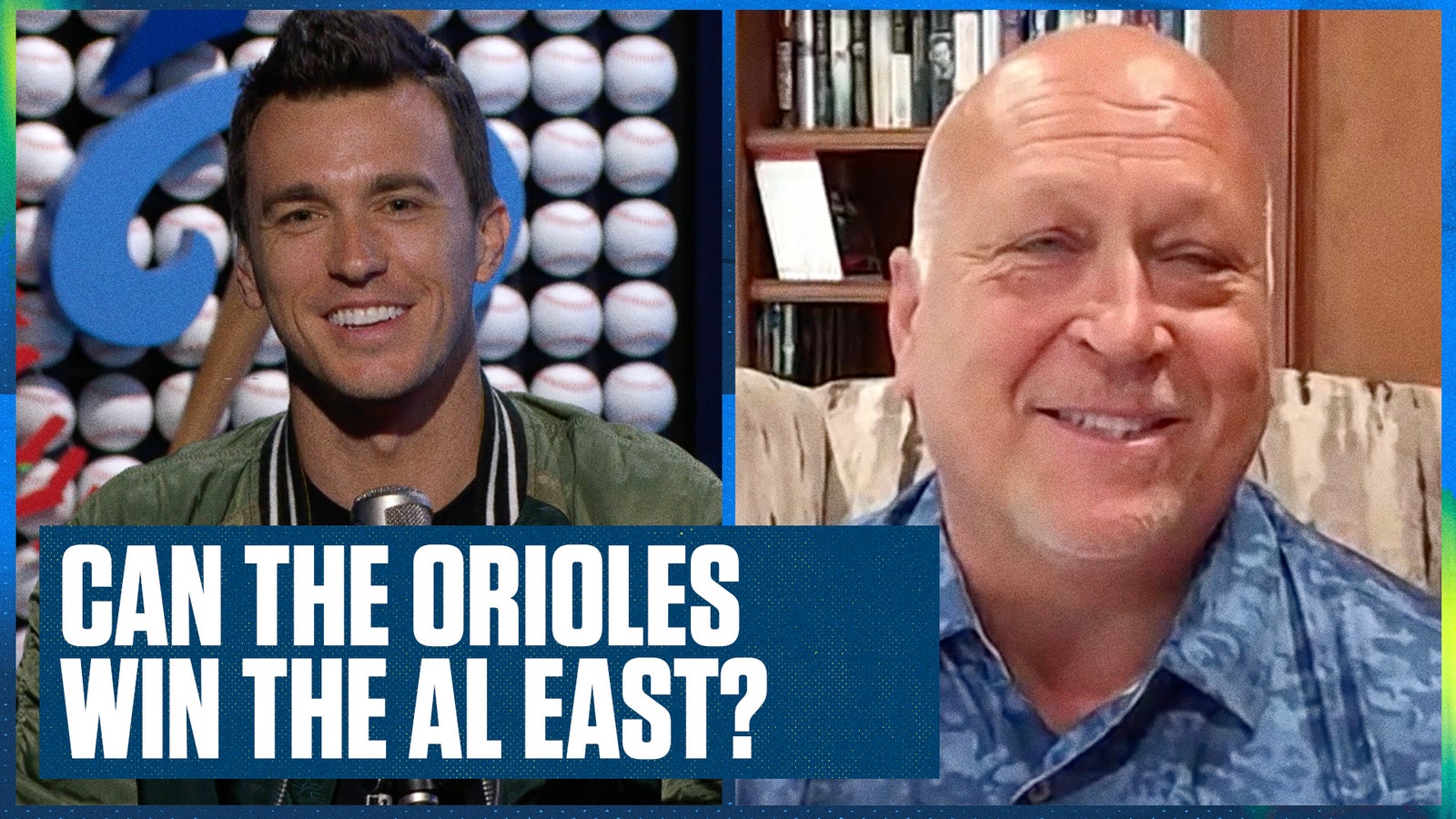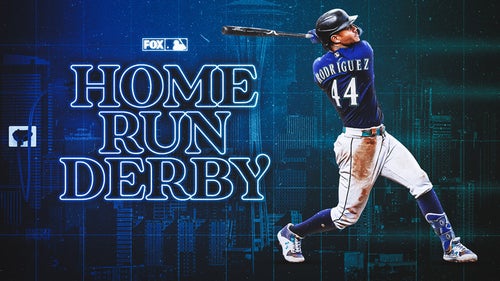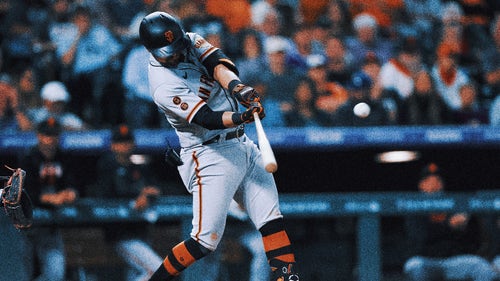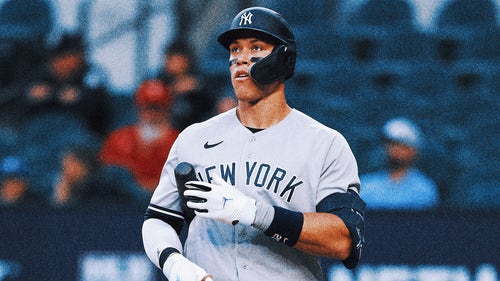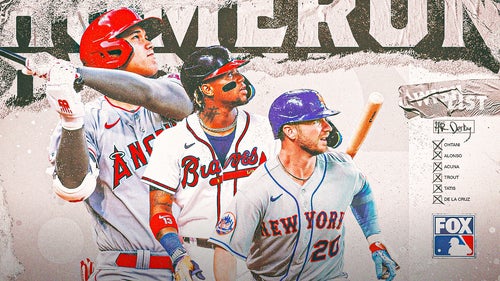Robert Downey Jr. was not the first Iron Man.
More than a decade before the actor began portraying the Marvel superhero in a series of blockbuster films, Cal Ripken Jr. captured the hearts and minds of baseball fans everywhere with his own heroic feat — surpassing Lou Gehrig’s “Iron Man” streak of 2,130 consecutive games played and eventually increasing his own streak to a still-unmatched 2,632 games played.
Ripken became the new MLB Iron Man by playing in his 2,131st game on Sept. 6, 1995, prompting a massive ceremony for the Baltimore Orioles legend at Camden Yards in the middle of the team’s game against the then-California Angels.
As part of a wide-ranging interview with “Flippin’ Bats” host Ben Verlander, Ripken said that while he wished that moment had come under different circumstances for his team, it still holds a special place in his memory for reasons that go beyond just playing in the game.
“I was hoping that whole year that we would stay in the playoff [race], we’d be good enough and there wouldn’t be as much a focus on the consecutive game streak — that it would just be an important series,” Ripken said. “We kind of fell back, but the Angels were in the hunt for the pennant that year. It was always important for me as we celebrated the streak — which I can understand in hindsight, people relate to the streak in many ways because they have their own streaks, they go to work, they go to school, it’s important to them to show up, and I understand the importance of that — but I wanted to be able to play well, and I wanted our team to really play well so that would be the focus instead of me for that series.”
The Orioles did just that, completing a sweep of the Angels in Ripken’s record-breaking game.
“I hit a home run in each one of those games, and we pitched and played really well,” Ripken recalled. “I was particularly proud of that because in order to play all those games in a row, you have to deserve to be in the lineup. I always looked at myself as someone that would be there and could be counted on by their teammates each and every day, but it was still important for me to play well and win, not just celebrate the game streak.”
Regardless of Ripken’s reluctance, his streak at that point had taken on a life of its own. It did not start that way, however, and Ripken said he always tried to downplay it as Gehrig’s mark grew closer throughout the 13 years it took to assemble that streak.
“I never set out to do it,” Ripken said. “Most people think that I was obsessed with being in the lineup every day, but I would have traded all that for more hits than Pete Rose or more home runs than Hank Aaron. I just wanted to play and just wanted to keep getting better. … The managers just kept writing my name in the lineup, and I just kept playing.”
While others eventually began talking about his streak — Ripken recalls the conversation commencing at about 1,000 games — he remained focused on improving, even going over five years without missing a single inning from 1982-1987. The logic for staying in games even when the final outcome was not in doubt was simple for Ripken.
“When you’re in a blowout game and you’re not getting your swing down right, it was always an opportunity for me to stay in the game and try something new that might work for the next day,” Ripken said. “If you were swinging the bat really well, you didn’t want to come out. You just wanted to keep getting your timing kind of keep playing that out. That was my reason for staying in all that time.”
Still, maintaining the streak was not always easy. Ripken remembers hearing outside commentary sometimes calling for his temporary benching when he slumped or when the Orioles were in the midst of a rebuild and could provide opportunities for younger players.
“But I wanted to keep my same attitude that I had from the beginning, and I always thought that was the right way to play,” Ripken said.
Of course, there were times when Ripken was tempted to take a day off — and when many others in his position would have, though Ripken insists he never kept playing just to keep his streak alive. One such instance occurred in a day game following an extra-inning night game in Boston — with Roger Clemens on the mound for the Red Sox.
“I think I was 0-for-22 going into that game,” Ripken said. “So I started to think with all the things added up, it would be good for someone else to meet this challenge. But then you force yourself to go out and say, ‘In order to beat Roger, you have to put your best lineup on the field.’ I thought I was part of the best lineup on the field. In that particular day, I think I got two hits off of Rog, drove in the game-winning run, and we beat him.
“When you do something like that, the next time that you feel like you could use a blow or you might not be 100 percent or you’re not swinging the bat too well, it’s easy to remember those times and push forward.”
Ripken also credits his father, longtime Orioles coach Cal Ripken Sr., with helping provide motivation throughout the streak. The elder Ripken was all about being a gamer and showing up every day for teammates, and Ripken Jr. said the last thing he wanted to do was disappoint his father by not showing the same mentality and then have to face him in the dugout.
“My dad used to always say, you can’t replay yesterday’s game — although you can learn from it — and you can’t play tomorrow’s game before it gets here, so you might as well play this one,” Ripken Jr. said. “That was my simple approach for all those years.”
During the elder Ripken’s only full season as Orioles manager in 1987, Ripken Sr. also convinced Ripken Jr. to sit for a few innings and end that streak. The Orioles were truly a Ripken family affair in those days — not only were the two both prominent faces in the organization, but younger brother Billy was also a rookie infielder with the Orioles in 1987 and remained with the team through 1992.
“It was great to have my brother and have my dad there,” Ripken said. “Sometimes those great things, you don’t realize how special they are until you don’t have them anymore, and so looking back on it, I was really thankful to be with my dad in the big leagues. Baseball took dad away from me in some senses when I was a kid. I didn’t have my dad there like other young kids did because he had his own responsibilities, so being able to join with him and learn from him as an adult and be a teammate of his and then have my brother there for five years as we were double-play partners, that’s pretty darn special.”
Both father and son often downplayed their dynamic on the team publicly and privately, but there were some perks to having a father as a coach. As a young player, Ripken was often assigned to shadow another future Hall of Famer and Orioles legend, Eddie Murray. Ripken also remembers one special moment where he especially felt his father’s pride.
“When I hit a home run, especially my first one, coming around the bases he was the first handshake that I had,” Ripken recalled. “My dad was the third base coach, and the first handshake I got was from my dad. I swear there was so much love that was pouring out. Sometimes it doesn’t all come in the form of words.
“It was the expression, the look on his face, that he wasn’t just a coach that was delivering it to a player, he was my dad delivering that message to me.”
Of course, the younger Ripken became an elder statesman in his own right by the time he retired from Major League Baseball. Even in his later seasons, after his streak had ended, he still knew how to put together a noteworthy game, such as his nationally televised 6-for-6 hitting performance in a 22-1 drubbing of the Atlanta Braves and future Hall of Famer (and current MLB on FOX lead analyst) John Smoltz in 1999.
One of Ripken’s most memorable moments occurred in his final season, when he was voted in as the American League starter at third base for the 2001 All-Star game after announcing in June that he would retire at the end of the season. AL starting shortstop Alex Rodriguez, who grew up idolizing Ripken, approached the aging legend just before the game with a proposal — Ripken should play shortstop one final time.
“Alex came over and told me to play the inning at short, and I thought that was the dumbest idea until he pointed to [AL manager] Joe Torre and said, ‘Look at Joe’ and Joe is saying, ‘Go over there,’” Ripken recalled. “I’m thinking, ‘I pride myself on kind of knowing what happens around the baseball field,’ but I had no idea. I thought everybody knew but me, and then I had no choice.
“I didn’t get my ground ball, but when I think back on it, it was a wonderful tribute all the way around because the success I had at the shortstop position as a larger guy might have changed the mindset a little bit or made people think of it where they could give somebody else a chance at shortstop, as opposed to saying, ‘You’re too big to play shortstop, move to third, or move to first.’ So I felt pretty proud of being able to because I think Derek [Jeter] and Alex and all those guys, they would have paved their own way, but I felt really proud that a change occurred. Maybe the position is looked at a little bit differently now than it used to be.”
That All-Star Game was played in Seattle, just like this year’s edition of the Midsummer Classic (July 11 at 8 p.m. ET on FOX and the FOX Sports app).
To no one’s surprise, Ripken has stayed busy in retirement. He and his brother have remained active in various charitable endeavors, the ownership of minor-league teams and even special facilities for young baseball players — including a young Verlander, years ago — meant to simulate the experience of playing in actual MLB ballparks.
Ripken, of course, is also keeping tabs on the current Orioles team, the product of another Baltimore rebuild that currently sits at second in the AL East (48-33) and is led by young stars such as outfielder Austin Hays and former No. 1 overall draft pick Adley Rutschman.
“They’ve really executed well and drafted well,” Ripken said. “And then they grabbed other players that had good stuff from other organizations to kind of piece them in, and the pieces all seem to fit. They’re a really entertaining team to watch. It’s almost like, when I look back when we went through a couple rebuilds, 1989 was the ‘Why Not?’ year. We surprised everybody, and we went to the last game of the season before Toronto won [the division]. As we went on that year, our young talent started to get their feet underneath them, and they started to believe in themselves and we just started winning — and we just kept on winning all the way to the end.
“I could see that with the Orioles now. Gunnar Henderson is a terrific prospect. [He] got off to a little bit slower start, seemed to be a little unsure about himself, but watching him now, he had a great month of June. He’s certainly going to be somebody to watch for many, many years. Adley Rutschman, a switch-hitter, a catcher where maybe his biggest value might not be with the bat but how he handles the pitching staff, so they have a chance. They’re positioned really well.”
Ripken says he still pays for season tickets behind home plate at Camden Yards and has been attending games more frequently as the team has improved since last season.
In other words, should the Orioles return to the playoffs, Ripken Jr., the man who became a baseball legend for showing up every day beginning four decades ago, will still be at the ballpark.
MLB trending

Get more from Major League Baseball Follow your favorites to get information about games, news and more

